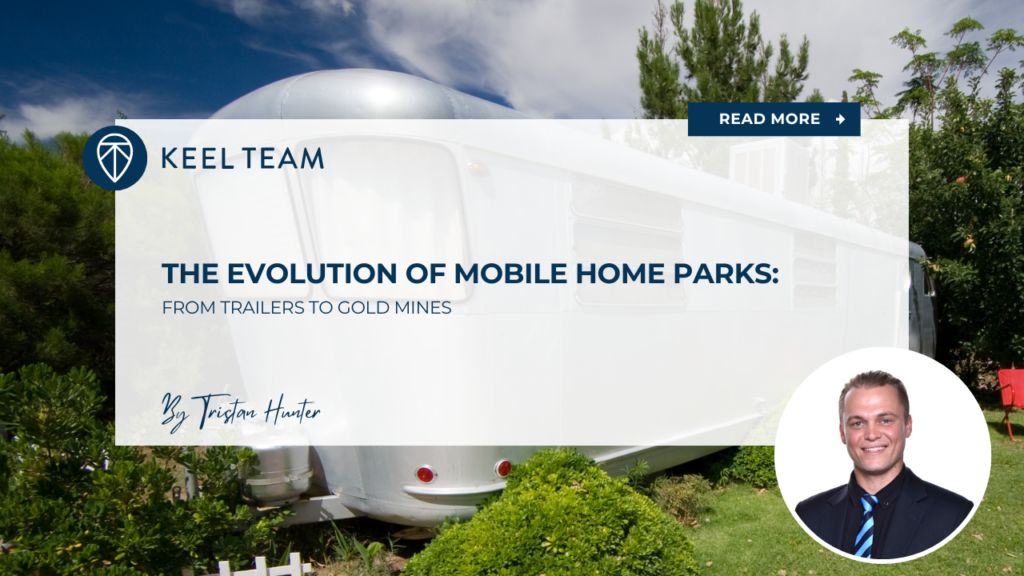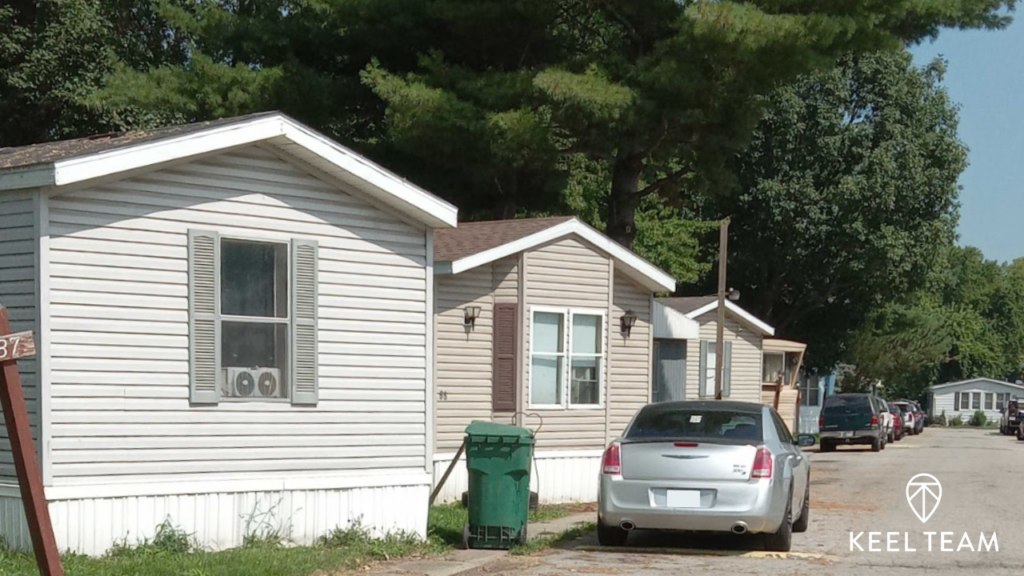The Evolution of Mobile Home Parks: From Trailers to Gold Mines
-
 Tristan Hunter - Investor Relations
Tristan Hunter - Investor Relations

Mobile home parks have come a long way since their inception. From humble beginnings, as roadside stops for travelers to becoming a crucial solution for affordable housing, mobile home parks hold a unique place in real estate history. This article explores the evolution of mobile home parks, tracing their roots while emphasizing their growing importance in addressing housing needs.
Early Days: The Birth of Trailer Communities
Mobile home parks started in the early 20th century, born out of necessity. In the 1920s and 1930s, cars became more common, and people began traveling long distances. Travelers often towed small trailers that served as temporary homes, creating a need for places where they could park overnight.
Entrepreneurs quickly noticed this opportunity and established basic campgrounds. These early sites lacked amenities but provided a place to stay for those on the road. Over time, these makeshift communities grew as trailers became more popular among people seeking a low-cost lifestyle.
Post-War Boom: The Rise of Permanent Mobile Homes
The post-World War II era marked a significant turning point for mobile home parks. With a surge in demand for affordable housing, returning veterans and their families turned to mobile homes as an alternative to traditional houses. During this time, trailers began to evolve into mobile homes—larger, more permanent structures designed for year-round living.
Mobile home parks became more organized, offering utilities like water, electricity, and sewage systems. Some even included communal amenities such as playgrounds and laundromats. These developments helped mobile home parks shift from being transient stops to becoming established communities.
The 1970s: Federal Standards and a New Era
The 1970s brought significant changes to mobile home parks and the industry as a whole. The U.S. Department of Housing and Urban Development (HUD) introduced construction and safety standards in 1976. These regulations ensured that mobile homes were built to last, enhancing their appeal as a permanent housing option.
This shift also influenced mobile home parks. Communities became safer, and their reputation improved as the quality of mobile homes increased. Investors and developers began to see mobile home parks as viable real estate investments, further driving their growth.
The Evolution of Mobile Home Parks Today
Fast forward to today, and mobile home parks have become an essential component of affordable housing. With the rising cost of traditional homes and apartments, mobile home parks typically offer a cost-effective option for individuals and families.
Modern mobile home parks sometimes include a range of amenities, from clubhouses to fitness centers. Additionally, many mobile home parks focus on creating a sense of community among residents. This shift has helped mobile home parks shed some of the stigma associated with them in earlier decades.
Download our FREE eBook on the Top 20 things to know BEFORE investing in mobile home parks!
The Common Benefits of Mobile Home Parks
Mobile home parks typically offer numerous advantages to residents and investors alike. Here are a few key common benefits:
1. Affordability
Mobile home parks provide housing at a fraction of the cost of traditional homes. This affordability makes them a viable option for individuals with limited incomes or retirees looking to downsize.
2. Community Living
Many mobile home parks foster a sense of community by organizing events and providing shared spaces. These efforts can create a supportive environment for residents.
3. Low Maintenance
Residents in mobile home parks often enjoy low maintenance responsibilities compared to traditional homeowners. Mobile home park operators typically handle common area upkeep and infrastructure maintenance.
4. Stable Investment Opportunities
For investors, mobile home parks can offer steady return potential. With demand for affordable housing consistently high, mobile home parks remain a relatively resilient asset class.

Challenges Facing Mobile Home Parks
Despite their benefits, mobile home parks are not without challenges. Some of the common issues include:
1. Land Use and Zoning Restrictions
Local governments often impose strict zoning regulations, limiting the development of new mobile home parks. These restrictions can create barriers to growth.
2. Aging Infrastructure
Many older mobile home parks require significant upgrades to meet modern standards. Operators may need to invest heavily in improvements, which can affect profitability.
3. Perception Issues
Although mobile home parks have evolved significantly, outdated stereotypes still linger. Overcoming these misconceptions is crucial for the industry’s continued success.
The Future of Mobile Home Parks
The future of mobile home parks looks promising, but their role in addressing housing challenges will likely depend on several factors. Policymakers may explore ways to encourage mobile home park development as a solution to the affordable housing crisis. Additionally, advancements in technology and design could further improve the appeal of mobile home living.
Investors and operators also have an opportunity to shape the future of mobile home parks. By prioritizing resident satisfaction and sustainability, mobile home parks can continue evolving into desirable communities.
Conclusion: A Vital Piece of the Housing Puzzle
The evolution of mobile home parks from temporary trailer stops to affordable housing communities highlights their adaptability and importance. While challenges persist, mobile home parks remain a valuable option for those seeking cost-effective living solutions. By continuing to innovate and focus on resident needs, mobile home parks could play an even greater role in solving housing challenges in the years to come.
Are you looking for MORE information? Book a 1-on-1 consultation with Andrew Keel to discuss:
- A mobile home park deal review
- Due diligence questions
- How to raise capital from investors
- Mistakes to avoid, and more!
Disclaimer:
The information provided is for informational purposes only and is not investment advice or a guarantee of any kind. We do not guarantee profitability. Make investment decisions based on your own research and consult registered financial and legal professionals. We are not registered financial or legal professionals and do not provide personalized investment recommendations.

Tristan Hunter - Investor Relations
View The Previous or Next Post
Subscribe Below 👇





